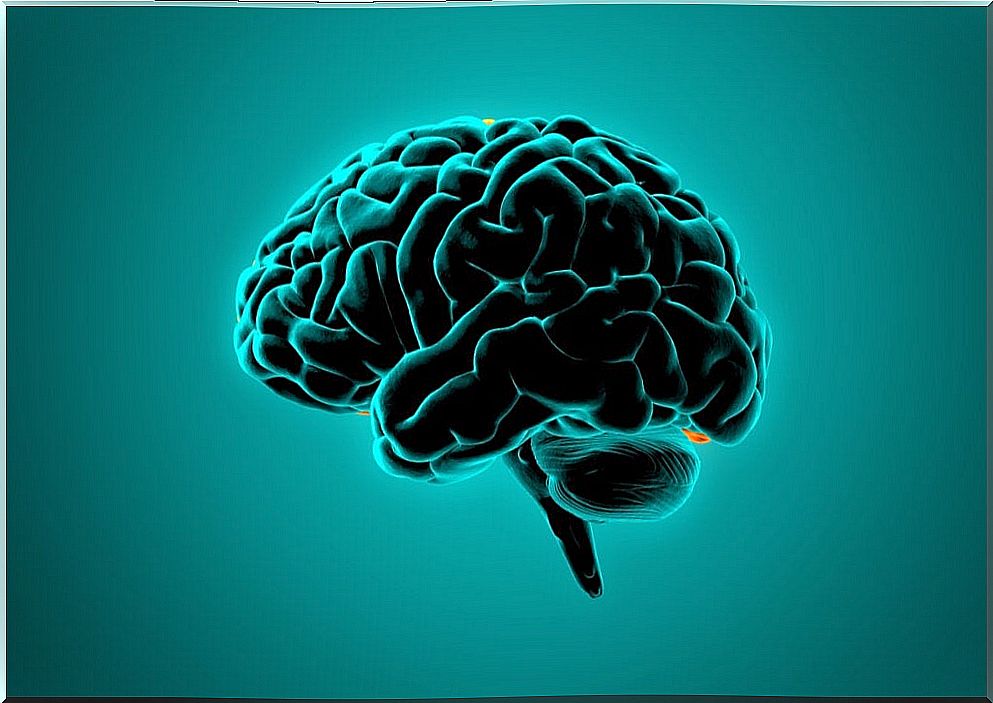Neuroscience: How Does The Brain Of Violent People Tick?

Statistics show that the number of criminal offenses has increased in recent years. What goes on in the brain of violent people ? Is this tendency genetic? Is there a biological cause behind this or is it all the result of a less humane society? The answers to these questions are not entirely clear.
We can speak of psychopathy, delinquency, or even paraphilias with violent tendencies. Often times, the social and cultural context is the scenario that favors the occurrence of negative behaviors.
Vicente Garrido, professor of criminology at the University of Valencia, points out that our world has become less fair but more competitive. This could explain part of this violent behavior. But we are also interested in knowing what is going on in the depths of the neurological universe of these people, what is unique and special, in order to be able to explain these kinds of stark realities.

The brain of violent people
In early 2000, Cary Stayner, a man in his forties, was caught for violently murdering four women in Yosemite National Park over the course of a year. He was responsible for the maintenance of the park and was the person of trust that many people turned to.
During the trial, he stated that he had been obsessed with harming women since he was 7 years old. His defense claimed he had a mental illness and had magnetic resonance imaging performed to identify neurological abnormalities. However, the judge does not want to take this into account. Cary Stayner was eventually sentenced to death.
Neurologists point out that the existence of a brain alteration cannot explain all cases of violent behavior. An example of this is Dr. James Fallon. This neurologist has spent his entire life analyzing psychopaths with tomographs to show that there are very specific abnormalities. He finally decided to perform this clinical test on himself and also discovered abnormalities in the process.
In addition, James Fallon found that there were at least seven people in his paternal family who had committed murders. However, factors such as a warm and loving family likely had prevented this “dark” biological determinism from developing. However, there is evidence that the brains of violent people have certain characteristics. We analyze them.
The monoamine oxidase gene and decreased serotonin production
Avsalom Caspi and his colleagues conducted a study in 2002. They showed that people abused in childhood had a change in the coding of the enzyme monoamine oxidase (MAOA). This anomaly has a clear consequence: more testosterone and less serotonin are produced.
This leads to anti-social and violent behavior. What is amazing (and even hopeful) is that administration of Prozac (fluoxetine), an antidepressant that regulates and improves the production of serotonin, can reduce this violent behavior.
The brain of violent people is less gray matter
Another significant aspect that has been observed in people who have committed acts of violence is a gray matter abnormality. In them, the anterior prefrontal cortex and the temporal lobes are less pronounced. This results in two very specific facts: less empathy and less guilt.
The amygdala and violent people
The amygdala is a small region of the brain that is closely related to the processing of emotions. It is a complex structure that is essential for survival.
Research at the University of Freiburg now shows something interesting in connection with the brains of violent people. People with a much smaller amygdala exhibit more aggressive behavior. In addition, overstimulation is also observed in this tiny neurological area in many cases.

Frustration and lack of impulse control in violent people
We understand that the brains of violent people work differently and that in many cases factors such as upbringing, education and the social environment stage these aggressive foundations. However, there is also an emotional factor: the lack of frustration tolerance and impulse control.
The violent person experiences high emotional stress when he does not get what he wants. What is so common in children and should be regulated early is a real danger in adulthood.
Mishandled frustration and an inability to control reactions often lead to aggressive behavior with serious consequences, especially when it comes to consuming alcohol or other substances.
In summary, it can be said that human behavior is partly biologically conditioned. Knowing these factors is essential in order to gain control over them.









